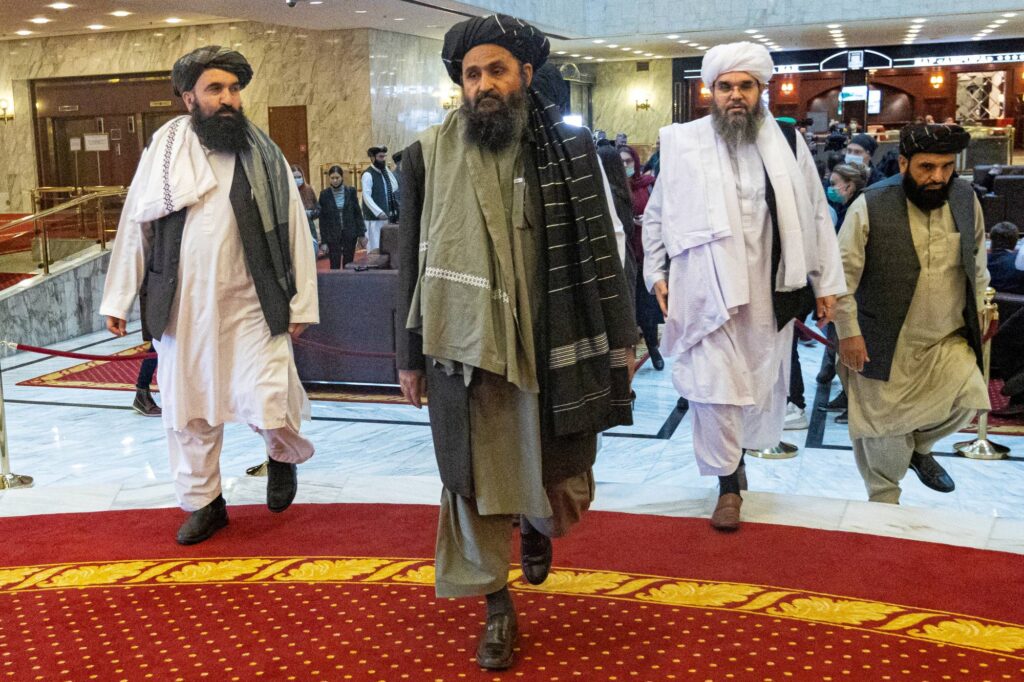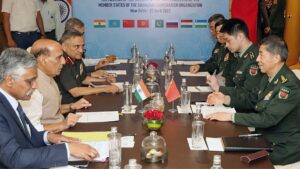Afghan families go back to making carpets as economy unravels

FILE PHOTO: Mullah Abdul Ghani BaraAfghan families go back to making carpets as economy unravels dar, the Taliban's deputy leader and negotiator, and other delegation members attend the Afghan peace conference in Moscow, Russia March 18, 2021. Alexander Zemlianichenko/Pool via REUTERS/File Photo
Four Afghan sisters have hauled their family’s carpet impend out of storehouse in the hopeless stopgap of earning a living as the nation’s frugality teeters on the edge of ruin. The Haidari sisters now spend their days sitting abreast on a thickset bench– as generations of the family did before them– weaving the complex hairpieces for which Afghanistan is celebrated. (Image AFP)
They work long hours each day, keeping a stalwart face indeed though there’s no guarantee they will have anyone to vend their carpets to.”We’ve no other option”to keep the family alive, said Ghulam Sakhi, the 70- time-old family primogenitor. (Image AFP)
Until August 15, when the Taliban returned to power in Afghanistan, the Haidari sisters had managed to escape the backbreaking labour of carpet timber and were running a successful business supplying flowers for marriages.
The strict movement’s austere interpretation of Islam, still, largely put paid to the lavish engagements so loved by Afghans, and the family enterprise collapsed. (Image AFP)
In an act of creativity in the face of adversity, they fell back on their family’s hairpiece- making trade.” Naturally when the Taliban took over. marriage halls did not have important business. That’s why we started carpets again,” said Rauf, at 28 the eldest of the sisters who all live and work in Kabul.”It’s a veritably old practice that our fathers have passed down to us,”he told AFP. (Image AFP)
Now they pick beaches from swinging spindles of silk before looping them into the underpinning and weft of the hairpiece with precise, metrical energy. And when the 12-metre (39- bottom) carpet is complete, they hope it’ll cost up to$ ( euros). (Image AFP)
Around two million of Afghanistan’s 38 million population work in the carpet sector, according to Noor Mohammad Noori, who heads the public carpet makers’ association. But demand has taken a sharp megahit since the Taliban’s preemption sparked an outpour of deportees working for transnational organisations, he says. (Image AFP)





